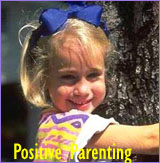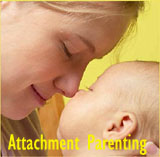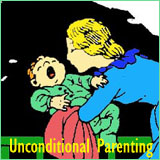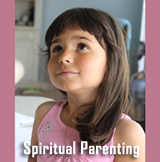Diana Baumrind's 3 Parenting Styles:
Get a Full Understanding of the 3 Archetypical Parents
In this article on the 3 parenting styles formulated by Diana Baumrind, you'll get:
- Quick background information about her research and methods.
- An important understanding of her 1960s concepts of demandingness and responsiveness that she used as 'measuring' tools to categorize the parenting styles.
- A detailed but lively description of her results:
- The authoritarian parenting style
- The permissive parenting style
- The authoritative parenting style
- And the later added, neglectful / uninvolved parenting style.
Diana Baumrind:
- Quick Facts About Her Famous Parent Child Behavior Study
 Back in the early 1960s,
developmental psychologist Diana Baumrind conducted her famous child care research.
Back in the early 1960s,
developmental psychologist Diana Baumrind conducted her famous child care research.
In her study she and her research team followed more than 100 middle class children of preschool-age. Baumrind's primary research methods were interviews and observation.
The aim of Diana Baumrind's child parent behavior study was to formulate and evaluate the effect of the most typical Western parenting styles.
Diana Baumrind's 3 parenting styles are these:
Her findings were ground breaking at the time and her analytical methods and results have ever since been subject to both academic acclaim and criticism.
Diana Baumrind's Two Analytical Measuring Instruments
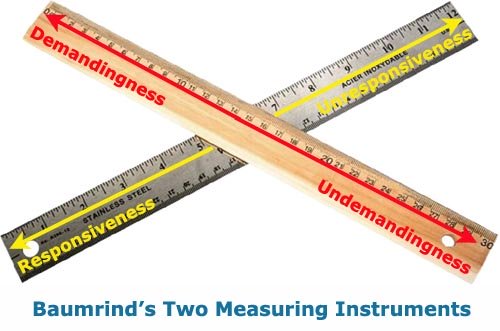
In her study Diana Baumrind used two aspects of parenting that she found so important that all her data was evaluated and the essence of the 3 parenting styles defined in relation to these two elements.
Her two analytical tools for formulating the parenting styles were:
1) Parental Responsiveness vs. Parental Unresponsiveness:
In the words of Diana Baumrind herself, responsiveness describes "the extent to which parents intentionally foster individuality, self-regulation, and self-assertion by being attuned, supportive, and acquiescent to children's special needs and demands" (Baumrind, 1991)
In other words, responsiveness is about how much or how little parents meet and respond to their children's needs!
2) Parental Demandingness vs. Parenting undemandingness:
I relation to demandingness, Diana Baumrind says that it refers to "the claims parents make on children to become integrated into the family whole, by their maturity demands, supervision, disciplinary efforts and willingness to confront the child who disobeys". (Baumrind, 1991).
Another word for demandingness is control. The demandingness continuum (high vs. low) describes the level of behavior control parents exercise on their kids based on their expectations of 'mature' behavior.
The 3 (and 4) Parenting Styles Model
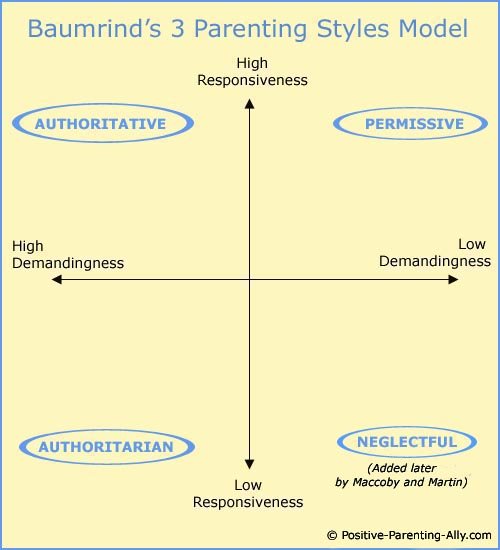
Before describing each of the 3 parenting styles in detail, I will just explain the model I've made above.
The parenting styles model has two axes. Each axis represents one of Baumrind's parenting themes which is 'high' in one end and 'low' in the other. Together these two axes of demandingness and responsiveness create four quadrants where each parenting styles is placed:
- The authoritative parenting style is high on demandingness and high on responsiveness (hence placed in the top left corner).
- The authoritarian parenting style is high also high on demandingness but low on responsiveness (hence placed in the bottom left corner).
- The permissive parenting style is high on responsiveness but low on demandingness (hence placed in the top right corner).
- The neglectful parenting style is both low on responsiveness and low on demandingness (hence placed in the bottom right corner. For the origin of this parenting style, please se my note further down this article).
An Important Note:
- The Parenting Styles are not "Real"!
They Are Archetypes!
Before you read on about the 3 parenting styles, please do bear in mind that these parenting styles are archetypical. In my opinion they represent 'clean-cut' personalities and behavior patters. This means that in reality most people don't just fit neatly into one archetype.
Typically people behave according to one primary archetype in most situations and then often have traits from some of the other parenting styles in other situations.
We people are not as 'black and white' as models portray us to be!
Description of Baumrind's Parenting Styles
In this article I will present you with Diana Baumrind's results.There's no doubt that Baumrind favors the authoritative parenting style and finds the authoritarian parenting style too strict and the permissive parenting style too soft.
I don't favor any of them, not even the authoritative parenting style. My personal approach is different from all of them.
But I will not be commenting on or evaluating her research results right here. However, if you're academically curious or just feel:
- "H'mmm, there must be more to it than these 3 parenting styles? Something seems to be missing!",
I recommend you go on reading this reflective article on parenting styles .
In that article of mine you'll get to:
- Read other researchers' academic criticism of Baumrind's definition of the parenting styles.
E.g. I'll present you with insightful comments from developmental psyhologist Stephen Greenspan and psychologist Wendy S. Grolnick who both find Baumrind's focus on high control inadequate and somewhat rigid.
For now, let's see what these 3 parenting styles are about.
The Authoritarian Parenting Style
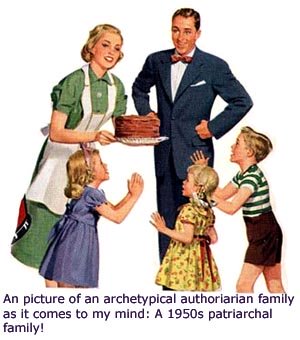
The extreme, archetypical representation of authoritarian parents:
To get a mental image of the archetypical authoritarian family, try picturing a typical 1950s American family: There are traditional family values (patriarchal), set family roles, firm rules and everybody behaves in a predictable, orderly fashion.
Main child discipline instrument:
Strict control maintained via rigid rules. Rules are typically enforced via threat and punishment.
The authoritarian parents' behavior, value and belief system:
- The authoritarian parents are conservative, conformist and norm abiding.
- Rigidity, harshness and predictability create a desired sense of being in control.
- Traditional roles and values are to be followed unquestionably. There are strict rules of child conduct. Misbehavior is considered a serious threat to the much cherished established order.
- The authoritarian parents see the world in only black and white, good or bad, right or wrong etc. This means that there is a lot of judgement and evaluation. A child is either good or bad, well-behaved or naughty.
- Children are often looked upon with critical eye. They are basically perceived as non-equals, and sometimes even subconsciously perceived as enemies that pose a threat to order of things and therefore must be kept down.
- Rules and orders are not explained but are to be obeyed instantly and unquestionably. Discussion such as give and take dialogue is not encouraged.
- Praise and reward are potentially dangerous because of the idea that they may lead to children becoming 'too full of themselves' and consequently developing too much autonomy and straying off the 'good' path.
- A good child is a child that lives up to expectations of 'mature' ('adult') behavior: such as being independent, well-behaved, undemanding, non-emotional, participating in house chores to develop a sound work ethic etc.
Kids' social behavior and inner being (the effect of the authoritarian parenting style):
- Kids of authoritarian parents quickly learn to adjust to the parents' expectations. In other words they are well-behaved out of fear: "If I don't behave, I will be punished!"
- They tend to willingly obey authorities. They have internalized and accepted the prevailing norm and value system which means they do relatively well in school, do not engage in 'deviant' behavior such criminal acts or experimental drug or alcohol use.
- They are not used to making independent choices, taking full responsibility for themselves and do not experiment much with new ways of doing things or alternative ways of thinking.
- According to research, kids of authoritarian parents are not as socially 'skilled' as kids from authoritative and permissive families.
- According to research they find it difficult to handle frustration: girls tend to give up in the face of challenges and boys tend to react with aggressiveness.
- According to research, they are also more prone to suffer from low self esteem, anxiety and depression.
The Permissive Parenting Style
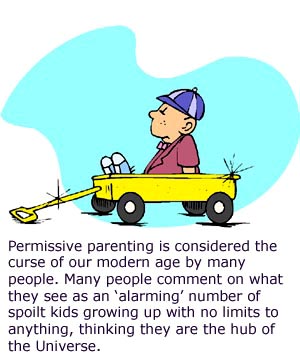
The extreme, archetypical representation of Permissive Parenting:
The archetypical image of permissive parenting, also called indulgent parenting, is that of a conflict scared parent desperately trying to maintain a 'friendship' with his or her bossy child rather than being 'a parent'.
The child behaves in a 'unruly' fashion, oblivious of other people's needs and is only interested in having fun. Many people believe that permissive parenting is a curse of the modern age: The child is seen as being too much in the centre!
Main child discipline instrument:
Use of reasoning, manipulation and / or bribes as means to achieve some level of control.
The permissive parents' behavior, value and belief system:
- Permissive parents believe in the autonomy of the individual. The world is seen as a free place filled with opportunities just waiting to be seized.
- Permissive parents believe in responding to their children's desires in an accepting and affective manner.
- The child is viewed as a 'child' and is not expected to behave according to 'mature' or 'adult' standards.
- Traditional child discipline and rigid rules of conduct are seen as restrictive of a child's natural development and free, independent thinking.
- Children are perceived as equals and are included in decision making processes and are encouraged to communicate and discuss rather than just obey.
- Permissive parents dislike and tend to avoid confrontations and the overt use of power to shape and regulate their kids behavior.
Kids' social behavior and inner being (the effect of the permissive parenting style):
- A complete lack of limits, absence of authority figures, no consistent routines, no predictability may lead to a sense of insecurity in the child: "How far can I go and what can I count on?"
- Because of the potential experience of wavering, conflict scared parents the child may become bossy or dominating as he or she tries to search for limits where there are none.
- Because of the installed beliefs that the world is open for experimentation and that there are very few 'musts', children of permissive parents are found to be more impulsive and involved in 'problematic' behavior such as drug and alcohol use and do less well in school than kids from authoritative and authoritarian parents.
- As these kids are brought up in the belief that they are adults' equals, they are well equipped in dialogue, have high social skills and high self esteem and low levels of depression.
The Authoritative Parenting Style
This one of the 3 parenting styles is Baumrind's ideal parenting style.
Baumrind views authoritative parenting as a sort of middle ground, taking the best from the authoritarian parenting style, high control, and the best from the permissive parenting style, high responsiveness.
Even though Baumrind's research is 50 years old, many people (not me), child experts included, see the authoritative parenting styles as the 'ideal' parenting style.
Main child discipline instrument:
Control is achieved via the use of firm but fair reasoning as a base for 'moderately' open negotiations along with positive reinforcement.
The authoritative parents' behavior, value and belief system:
- Just like the authoritarian parents, the authoritative parents' control is firm and standards of behavior is are high. The difference is that authoritative parents are not 'keeping' their children down or restricting them as a sort of preventive measure for bad behavior. The authoritative parents strive towards letting their children live out their potentials but within an overall controlled framework: "You can go as far as this point, but exceeding this boundary will not be tolerated!"
- "They monitor and impart clear standards for their children’s conduct. They are assertive, but not intrusive and restrictive. Their disciplinary methods are supportive, rather than punitive. They want their children to be assertive as well as socially responsible, and self-regulated as well as cooperative" (Baumrind, 1991, p. 62).
- In this way authoritative parents recognize that a child needs to have a degree of say but will always make sure to have the final word. In this way they strive to balance a child's need for autonomy and their own need for discipline and control.
- Authoritative parents use praise and positive attention as a way to make their child 'want to' behave well: "If I behave and do well, I will get positive attention and affection!"
- Authoritative parents make an effort to understand their child and teach them how to understand their own feelings, think of ways to solve problems and encourage them to follow independent but still norm supportive ways.
Kids' social behavior and inner being (the effect of the authoritative parenting style):
- Because of the use of positive reinforcement (praise) along with logical and fair rules done in a warm, caring manner, the child has learnt that behaving and following the rules feels good and get them positive attention.
- Their ability to decode and subsequently live up their parents rules and expectations provide them with well developed social skills and emotional regulation.
- According to research, kids of authoritative parents do well in school, are self confident and goal orientated.
I think The Cosby Show represent an archetypical authoritative family: Control / demandingness is high and responsiveness / warmth is high as well.
The Neglectful / Uninvolved Parenting Style
The uninvolved parents fulfill their children's physical needs but are otherwise distant, detached, and disengaged.
The uninvolved parents may lead 'full' lives but their life is emotionally separate from that of their children. There are few demands and limits and communication and responsiveness is low.
The children of neglectful parents have low self esteem (no attention makes them feel unimportant) and they are less socially competent than children of raised with the other parenting styles.
Children and adolescents whose parents are uninvolved perform most poorly in all domains.
A note on the origin of this fourth parenting style:
In my original article I wrote that the neglectful / uninvolved
parenting style was
formulated by Maccoby and Martin
when they in 1983 expanded upon Baumrind's work. If you do a quick
search online, you'll find plenty of articles concluding the same.
However, I was contacted by Diana Baumrind's daughter, Nikki Baumrind, who told me that there was an "inaccuracy" in my articles regarding that fourth dimension. Nikki Baumrind wrote to me that:
- "You indicate that Maccoby and Martin added the fourth dimension of the model. That is not correct. My mother's original description included the two by two matrix, including the neglectful parents. Most people have forgotten that parental type, with the notable exception of Maccoby and Martin's summary of my mother's work."
When I further researched this issue, I found that in 1971 Baumrind published a study where she grouped families into eight parenting styles:
- Two types of authoritarian parenting styles
- Two types of authoritative parenting styles
- Two types of permissive parenting styles
- And two additional parenting styles, one of which was labeled "rejecting-neglecting".
New, Modern Perspectives on Baumrind's 1960's Parenting Styles Study!
There's no doubt that Diana Baumrind's insights has contributed tremendously to the academic field of child parent behavior research.However, the study is more than 50 years and I think it does show.
Among other things, I think her academic and analytical point of departure - the presumption of high control being an important definitive of 'good' parenting - is a direct reflection of the early 1960s societal norms and mindset.
If you want more 'meta thinking' and want to see my analytical perspectives on her 3 parenting styles, you're welcome to dive into this this article
Your Positive Parenting Ally,
Birgitte
Note: This article has been updated for accuracy in January 2019.

Want to stay in touch and get the latest news?
Sign up
for my free newsletter
Parent Coaching
- For Inner Peace, Clarity and a Deeper Connection to Your Child
 Being a parent can feel like a double-edged sword. Life with kids may feel like the greatest gift you have ever received, while at the same being hugely challenging, often leaving you confused, stressed and overwhelmed.
Being a parent can feel like a double-edged sword. Life with kids may feel like the greatest gift you have ever received, while at the same being hugely challenging, often leaving you confused, stressed and overwhelmed.
When we feel like this, we've lost touch with ourselves. We can't hear our own inner voice, and it's difficult to know what is 'right' for us and how to act.
I offer in-depth parent coaching to help you regain your balance and get back in touch with yourself. From a place of inner peace and clarity, your will find your own answers which will help you reconnect with your child from a place of unconditional love and acceptance.
Read more about my parent coaching here.
Where Would You Like to Go Next?
Go to the 'Mother Page' of These Parenting Articles
 Tracing Diana Baumrind's Parenting Styles Through History! Unravelling the Essence of the Dominant Parenting Paradigms of the Western World |
Article on Diana Baumrind's Parenting Styles
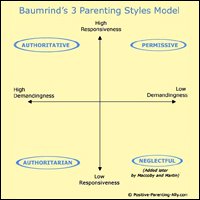 The Four Basic Styles of Parenting Taken a Step Further: Reviewing Diana Baumrind's Model with the Tool of High Awareness. |
Articles on the Authoritarian Parenting Style
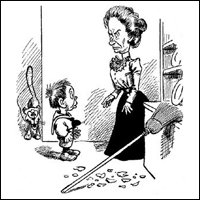 A Fascinating Historical View on the Authoritarian Parenting Style Along with Deep Insights into Authoritarian Parents' Thought Pattern and Its Effect on Their Kids. |
 A Psychological Profile on Authoritarian Parents! Understanding the Authoritarian Personality from Within! |
 The Essence of the Authoritarian Parenting Style and the Long Term Effects of Strict Parenting! |
Articles on the Permissive Parenting Style
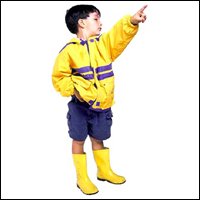 The Permissive Parenting Style Seen in an Existential Light. The Beingness of Permissive Parenting vs. the Beingness of Positive, Unconditional Parenting! |
 Understanding the nature of the permissive parenting style: Going beyond Diana Baumrind's idea of low demandingness and get deep insights into the psychology of permissive parents. |
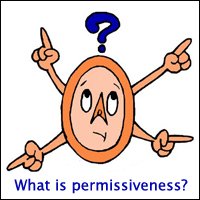 Permissive Parenting Historically and Psychologically: The Rise of 'Permissive' Parenting and the 3 Fear Based Indulgent Parenting Strategies! |
 A Psychological Profile on 3 Types of Permissive Parents: Understand Their Indulgent Behavior by Understanding Their Ego Fears! |
Articles on the Authoritative Parenting Style
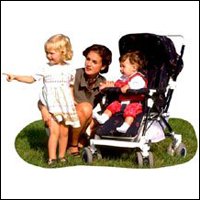 Deep Insights into the Authoritative Parenting Style along with Modern Perspectives on Diana Baumrind's Beloved 'Firm Parental Control'! |
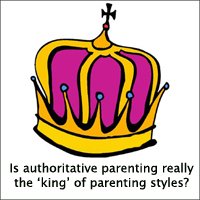 Academic Criticism of the Authoritative Parenting Style: Questioning Diana Baumrind's Celebration of High Control! |
Back to the top of this page about Diana Baumrind's 3 Parenting Styles: Get a Full Understanding of the 3 Archetypical Parents
Go to the Positive Parenting Ally Homepage




